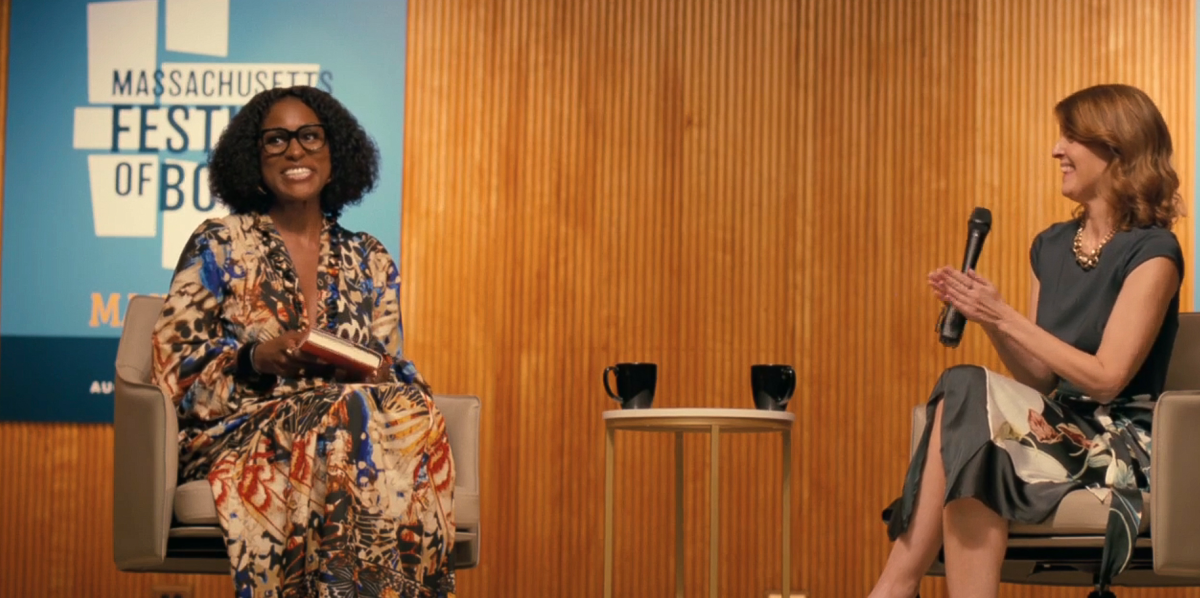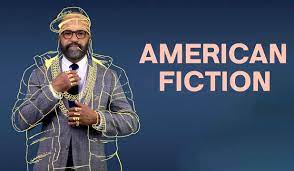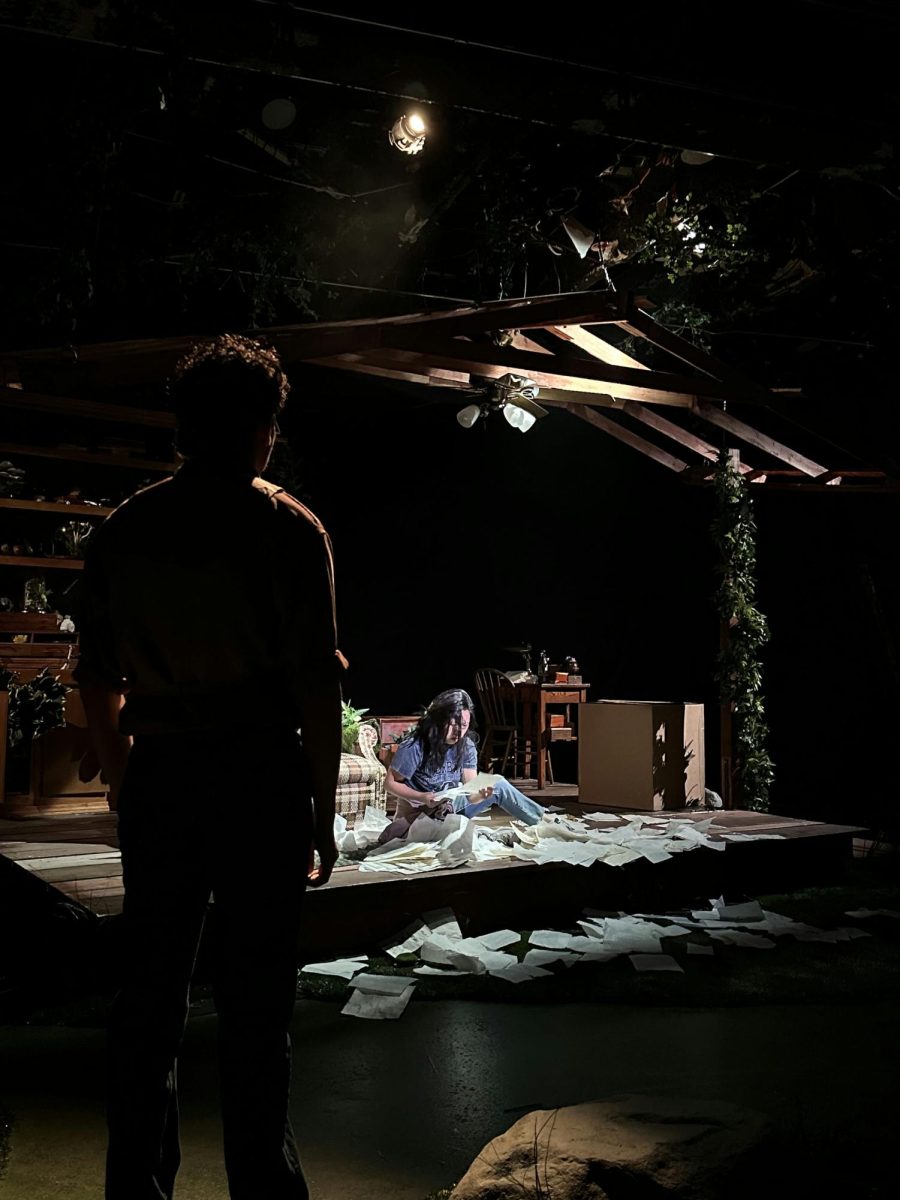The ‘fiction’ that is being discussed in Cord Jefferson’s (“Watchmen”, “The Good Place”) adaptation of Percival Everrett’s, “Erasure” and feature directorial debut, “American Fiction,” is just that: the fiction of America. Whether it be a white savior who careens in to save the day or an imaginary loophole discovered in an inherently broken system. The stories of black and brown communities told through major artistic outlets – Hollywood, big publishing houses, etc. – are often put in place to reaffirm the stereotypical beliefs of the average white media consumer.

There are endless examples of how black and brown communities have been, and continue to be, taken advantage of by the powers that be. And in a similar vein, there are innumerable examples of how those powers wish to keep white people in a place of confusion, fear, and complacency regarding ‘others’ and the way they are perceived. This dysfunctional relationship is perpetuated by those who aim to keep the American collective consciousness divided, and this film does a wonderful job of making this intention plain to see.
From the opening frames of the film, the scathing and challenging subject matter that is handled with both comedy and care is apparent. As Dr. Thelonious “Monk” Ellison (Jeffrey Wright) scribbles across his classroom’s whiteboard the name of a Flannery O’Connor short story which has a racial slur in it, he endures and attempts to assuage an influx of performative emotions from a white student for her perceived discomfort at the sight of this title.
A scene like this in the hands of less-skilled filmmakers could have come across as trite, hyperbolic, or actually offensive. But the one-two punch of Monk’s at first jovial response assuring the class of the word’s spelling, that since last he’d checked, “it still had two G’s,” followed by a stern retort to this student’s claims of offense that, “With all due respect…I got over it. I’m pretty sure you can, too,” telegraph the complexity, reality, and hilarity that will persist through every beat of this film.
As could be plainly seen from the trailer, this is the story of a black author pushing to put out work that is depictive of complex, diverse, unpredictable black experiences – rather than the monolithic, drug, poverty, and crime-riddled black portrayals that have become all too represented – but runs into a snare when he gains massive success after writing a piece of pandering satire (initially “My Pafology”) aimed at this lowest denominator. What isn’t as obvious in the trailer is the beauty, patience, and tear-inducing brilliance this film exudes. It is a heartfelt, multi-layered weaving of comedy, drama, and social critique that comprise a compelling and entertaining movie.
In depicting the struggle against simplistic portrayals of black lives, the incredible cast and crew craft a film that gives us a true example of what this sort of complex portrayal could be. It is a fascinating double-layering of show and tell, that stays grounded with stellar acting performances. Granted, having multiple doctors in the family, a live-in caretaker, and a stunning beach house may not be entirely relatable to everyone, but the depth of these characters and the love they show one another through ups and downs will have you crying and laughing as much as it will leave you thinking about this tried history of this country.

The culmination of “American Fiction” is a bit of a choose-your-own-adventure that implores the audience to envision some of the ways American media has classically portrayed and continues to portray the black experience and to ask ourselves why this is the case, why we continue to find this artistic reduction adequate, and how it makes us feel to see it time and time again. Art allows us the ability to witness new ideas and perspectives that we wouldn’t receive elsewhere and this film is no different. In a time where there is no end to what we can consume in the world of media – much of which serves to distract more than anything – seeing a film made through a large studio that actually challenges the viewer to understand something in a new way is revolutionary.
“American Fiction” is in theaters now, so go see it while you can! If not, don’t fear, it will stream on Prime Video later this month.




